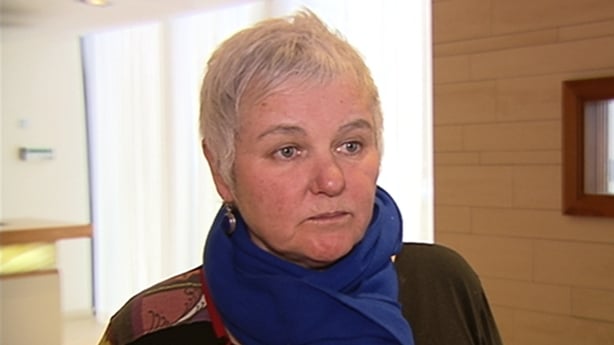Minister for Justice Charlie Flanagan has written to the Ceann Comhairle of the Dáil to ask him to take appropriate steps in relation to comments made in the house by People Before Profit TD Bríd Smith about a High Court judge.
Ms Smith's comments and posts on social media in relation to the issue have also been strongly condemned by the association representing the country's judges, as well as organisations representing barristers and solicitors.
It is understood the Minister has also written to the Chief Justice, Mr Justice Frank Clarke, about the matter.
Ms Smith criticised High Court judge Mr Justice Garrett Simons following a judgment given by him on Tuesday in which he found that legislation allowing for legally enforceable pay and conditions to be set for thousands of workers, particularly in lower paid roles, was unconstitutional.
The judge found against the State parties in the case. They have 21 days to decide whether or not to appeal.
Ms Smith described the judgment as a "declaration of war" on workers' protections. She also posted a meme featuring the judge on her Facebook page.

In his letter to the Ceann Comhairle, Seán Ó Fearghail, Minister Flanagan said he was gravely concerned by what he described as a highly personalised, inappropriate and inflammatory attack on a High Court judge.
He said it trespassed on the separation of powers and represented an attack on democracy itself.
The minister said Ms Smith had not only made remarks on the Dáil record but was waging "something of a campaign" on social media, including posting photographs of the judge in question.
He said the Irish judiciary had never hesitated to rule against the government of the day, and he was appalled by attempts made by a TD to politicise the judicial branch of government in this way.
Mr Flanagan asked the Ceann Comhairle to take appropriate steps to defend the separation of powers and the independence of the judiciary.
The Association of Judges said that the judge gave a detailed and carefully reasoned judgment.
They said anyone was entitled to disagree with any judgment given by any court and do so trenchantly.
However, they said the comments made by Ms Smith went beyond what was acceptable in a properly functioning democracy founded on the rule of law.
Ms Smith's comments were also condemned by the organisations representing the country's barristers and solicitors.
The Chairman of the Council of the Bar of Ireland, Mícheál P O'Higgins, said a personalised attack by a member of Dáil Éireann amounted to an attack on democracy and he said it was something all of society should be gravely concerned about.
Mr O'Higgins said in every legal case there were two sides and it was inevitable one side would not be entirely pleased with the outcome.
He said it was the role of the judge to apply the rule of law as set down by legislators, with impartiality and objectivity.
He also said for a legislator to personally criticise a judge for doing the job society asked them to do was dangerous and completely unacceptable.
President of the Law Society of Ireland Michele O'Boyle said Ms Smith's remarks were "shocking, unwarranted and dangerous".
Ms O'Boyle said a politician could disagree with a judge's decision and could appeal it or seek a change in the law.
However, she said it was not appropriate for a politician to launch a personalised attack on a judge's impartiality or integrity, adding that it threatened respect for rule of law, which protected everyone.
In their statement, the judges said Ms Smith and her party made a number of outrageous and unwarranted comments in relation to the judge on Facebook and on Twitter.
They go "far beyond the boundaries of legitimate criticism", the judges said, and amount to an extraordinary and wholly unjustified attack on the integrity and independence of the judge.
They said a suggestion that his ruling was ideologically motivated was baseless and dangerous and the fact that such comments were made by a member of Dáil Éireann was particularly concerning.
The association says all judges have to make a declaration, required by the Constitution, that they will carry out their functions without fear or favour, affection or ill will, towards anyone and will uphold the Constitution and the laws of the State.
The judge decided the case on the basis of facts, legal submissions, and case law, including previous rulings of the Supreme Court and acted entirely in accordance with the declaration.
They said he found against the State and the State was free to appeal the decision if it wished.
The association emphasised that judges in other jurisdictions do not enjoy the same degree of independence, adding that those who make unpopular decisions are subject to attacks which aim to delegitimise the judicial process and undermine public confidence in judicial independence.
They said this had never been a feature of political discourse in this state and it would be very regrettable if it was to be considered acceptable now.







